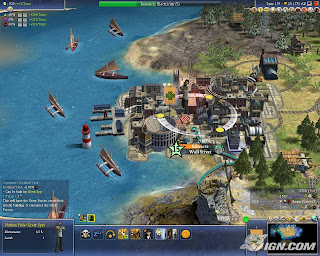The late Dr. Yusuf Bey created Your Black Muslim Bakery nearly 40 years ago, selling bean and carrot pies and hoping to inspire Oakland's poor to become "respectable and productive individuals."
This past Friday though, the bakery and its related businesses, a chain of bakeries, a security service, and a school among other businesses, was raided after the killing of 57-year-old Oakland Post editor Chauncey Bailey.
Seven people associated with the organization were arrested in connection with the killing and other violent crimes.
Bailey was working on an expose of the organization's finances when he was killed in a daring broad daylight murder by a masked gunman.
The gunman is believed to be Devaughndre Broussard, an employer of the group.
The Muslim group's headquarters at the original bakery and three Oakland houses tied to the group were raided.
Assistant Police Chief Howard Jordan said the raids were part of a yearlong investigation into a variety of violent crimes, including two homicides this year and a kidnapping and torture case.
Yusuf Bey elicited ire from the public in 1994 when he ran for mayor of Oakland. He received less than 5 percent of the vote after a campaign in which he said that women "belong back in the home" and that gays should not be allowed to teach school.
In 2002, Bey was accused of raping a girl but he died of colon cancer in 2003 while awaiting trial.
Bey tapped Waajid Aljawwaad Bey as his successor in his multimillion-dollar empire.
Five months later, Aljawwaad Bey's body was found buried in an unsolved homicide.
The group was plagued by additional violence. In 2005 the leader of the Bey security service, John Bey, was shot outside his Oakland home. He survived, and his attacker was never found. In 2005, Bey's 23-year-old son, Antar Bey, the organization's heir apparent, was killed in what police called a botched carjacking attempt at a gas station in North Oakland.
Shortly after Antar's murder, his brother, Yusuf Bey IV, took over the bakery empire.
Yusuf has pending charges stemming from a 2005 case in which he is accused of leading a Black Muslim group caught by surveillance cameras in November 2005 smashing up two Oakland corner stores. The men berated the stores' Muslim owners for selling alcohol to the black community even though alcohol is forbidden by Islam.
Your Black Muslim Bakery filed for bankruptcy last year.
After Friday's raid, county health inspectors shut down the bakery for health-code violations.
I often hear about how Muslims are targeted in the post 9/11 period but in any other circumstances, Your Black Muslim Bakery would be standard law enforcement activity.
The story reminds me how the Black Panthers, starting out with the best of intentions, dissipated to impotence by internal squabbles, violence, and police enforcement. The more things change, the more things stay the same.
I always liked Oakland, despite its grittiness, its an interesting mix of cultures, pleasant scenery, and working-class ethos. I stayed there this summer near Jack London Square while visiting San Francisco. I wish the city well.

































